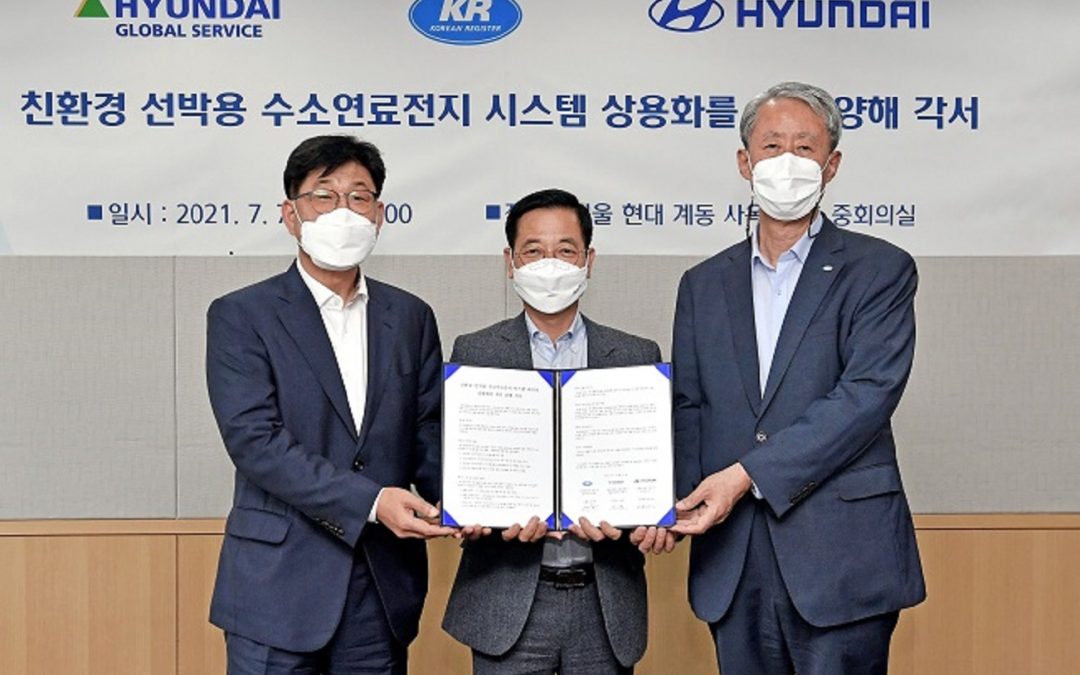Korean Register (KR), Hyundai Motors and Hyundai Global Services have signed a Memorandum of Understanding (MOU) to work together to develop and commercialize hydrogen fuel cell systems to propel marine vessels.
The IMO’s ambition to reduce GHG emissions from international shipping by 50% or more, by 2050[1] will lead shipowners to place orders for ships that burn fuels that leave little or no carbon footprint. As a result, hydrogen is attracting worldwide attention as a potential eco-friendly fuel for next-generation ships.
Through the MOU collaboration to commercialize a reliable hydrogen fuel cell system package for ships, Hyundai Motors will supply the fuel cell systems and provide technical support. Hyundai Global Service will manufacture and commercialize the fuel cell-based propulsion systems and KR will be responsible for establishing the standards for type approval, which all fuel cell-propelled vessels of varying sizes must meet in order to receive approval for commercial use.
Sae-hoon Kim, Vice President of Hyundai Motors said: “This MOU signals Hyundai Motor’s entry into the fuel cell-powered marine vessel market, made possible through our cooperation with Hyundai Global Service and Korean Register. We hope our decades-long experience and capabilities in hydrogen fuel cell technologies, combined with the expertise of Hyundai Global Service and Korean Register in the maritime industry, will usher in a new era of greener and cleaner shipping.”
Ki-dong Lee, CEO of Hyundai Global Services, said: “This collaboration between the three organisations will bring innovative changes to the market, meeting the increasing demand for eco-friendly ships. We will continue to work together to anticipate the needs of the developing hydrogen economy market.”
Hyung-Chul Lee, Chairman & CEO of KR added: “Meeting the IMO’s carbon emission and greenhouse gas reduction goals over the next 30 years, will be extremely challenging for the global shipping industry. But, KR as a reliable technical advisor will continue to establish collaborative working relationships with industry stakeholders to develop different fuel technologies, including hydrogen, to support shipowners and operators in meeting the IMO’s goals.
Source: Hellenic Shipping






